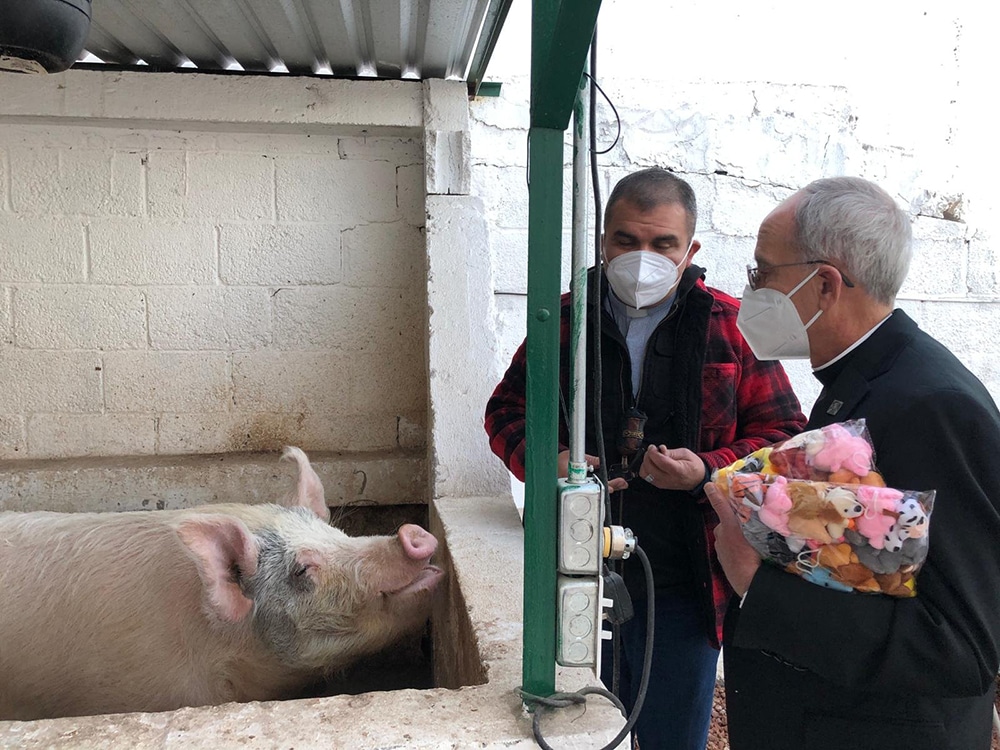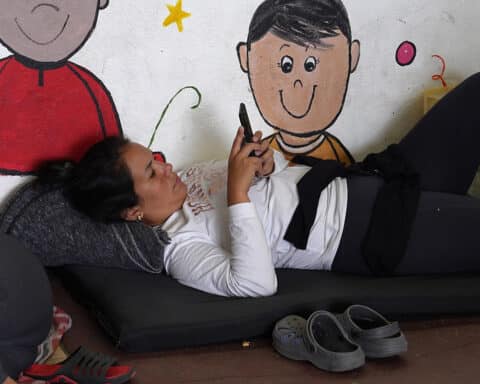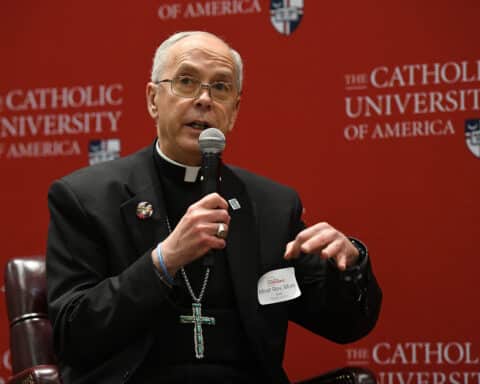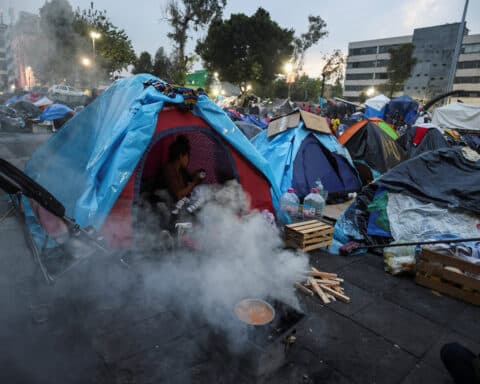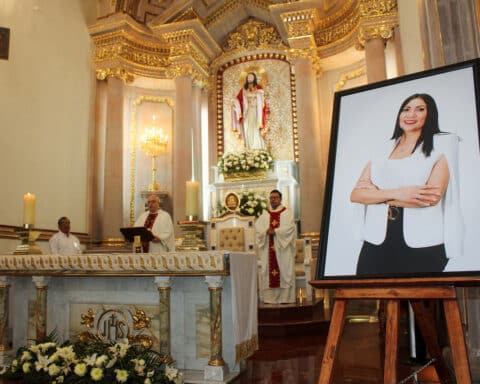WASHINGTON (CNS) — A little more than a month after being chosen chairman-elect of the U.S. Conference of Catholic Bishops’ migration committee, Bishop Mark J. Seitz wasted no time in heading across an international bridge Dec. 20 from his Diocese of El Paso, Texas, to the neighboring city of Ciudad Juarez, Mexico.
He wanted to get “a pulse,” he said, of what people are experiencing days after the Biden administration restarted a Trump-era program that keeps migrants on the other side of the border as they wait for their asylum claims to be heard.
He stopped by to chat with men and women, some from Central America, some from Haiti and South America, dropping off gifts for their children, blessing those who asked for a blessing, and talking to shelter workers on the front lines about what the past few weeks have been like.
On Dec. 6, the Biden administration restarted the Migrant Protection Protocols, also known as the “Remain in Mexico” program. Though President Joe Biden promised to end it, U.S. courts have prevented its demise.
In recent weeks, Mexico once again agreed to cooperate with U.S. officials, allowing migrants to wait in its border towns after receiving reassurances that the program, under the Biden administration, would provide better conditions for asylum-seekers, including access to medical care, legal help and vaccinations.
While U.S. Department of Homeland Security officials say they still are working on ending the program, they also promised more humane treatment, saying they would give more legal help to migrants and make their wait time for an answer shorter.
“We spoke with a group of men who have been returned under that ill-conceived program,” said Bishop Seitz in a Dec. 20 telephone interview with Catholic News Service from Ciudad Juarez. “I have to say that despite promises that it would be different, better, we did not see that today.”
He said he spoke with a group of men seeking safety from the economic, political and humanitarian problems gripping Venezuela. But instead of finding refuge, they feel like prisoners at a border they can’t cross, he said.
They can’t work in Mexico as they wait in squalid conditions, hoping for reprieve that may never come from U.S. immigration courts. It’s hard to find a place to shower and daily sustenance can be a challenge.
“It’s such a mistreatment of our fellow human beings,” said Bishop Seitz.
And yet there are shelters, some run by Catholics, others run by different faith groups, trying to alleviate some of the suffering. The bishop visited a facility run by an Anglican pastor who bought pigs, fish and some plants that migrants can care for, giving them some sort of purpose and sustenance while they wait for whatever comes next in their lives.
Through a project called the Border Refugee Assistance Fund, the Diocese of El Paso has been able to help such shelters tending to the growing number of immigrants waiting under the “Remain in Mexico” policy.
During his pre-Christmas visit, Bishop Seitz donated $40,000 from the fund to various shelters, including money for chickenpox vaccines for some of the facilities worried that a spread of the disease among children could shut them down.
He said he was touched by the great generosity of those who donated to the fund. But he also was touched by those who serve the migrants and the migrants themselves. They have no other choice but to entrust their situations, the uncertainty of their lives or of their children’s future to a higher power, he said.
Dylan Corbett, executive director of the Hope Border Institute, who accompanied the bishop in the brief jaunt, said it was an opportunity to once again see what some miss when it comes to immigration issues at the border. He also expressed hope for a change from the Biden administration particularly regarding “Remain in Mexico.”
“Every person and every family who approaches the border has a story, has dignity and has the right to seek asylum,” he said. “As people of faith, in the absence of action by the Biden administration, we will continue to advocate for more humane policies and to show through our solidarity that another way is possible.”
For the bishop, the visit, even with the desperation he witnessed and the hardship, “it drives me to the Lord,” he said.
He said he didn’t want to comfort the people he met “with platitudes.” He said he didn’t know what would happen to them or even that all would be OK in the end. But all he could do was be with them and put it in the hands of God.
“I really needed to get here before Christmas,” he said. “It’s a season, a feast, that calls us to those who are more vulnerable.”

